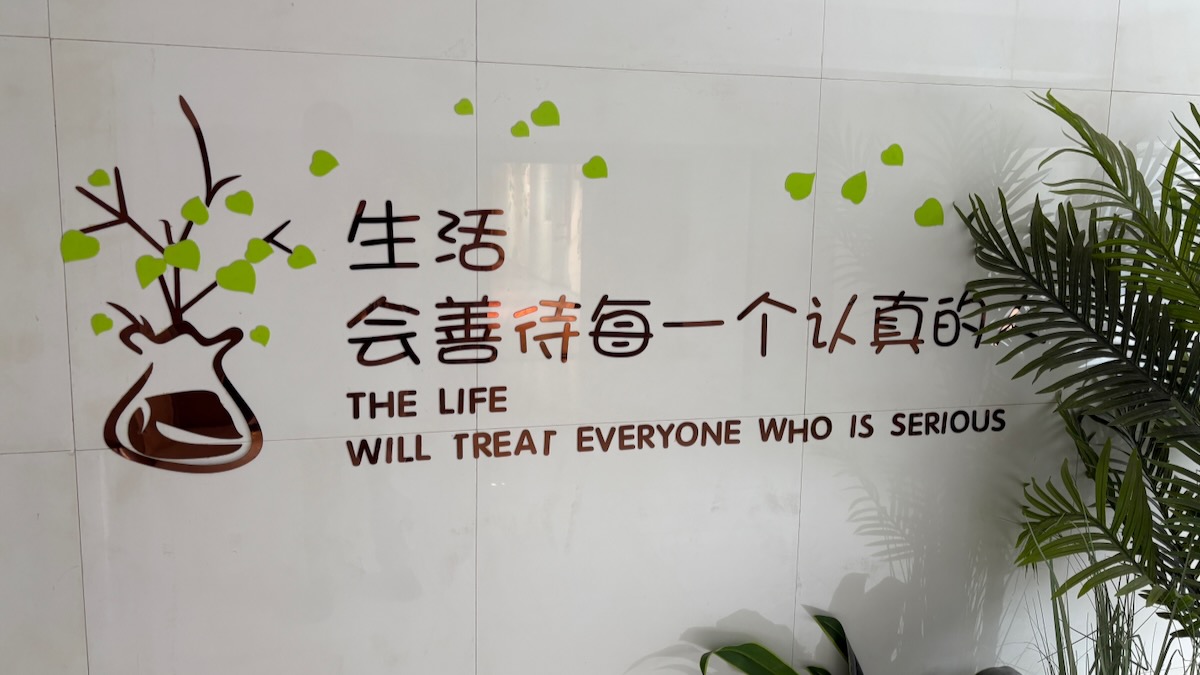The pleasures of remote working — which I’ve done for almost 20 years — is that you get to choose where you work. (With data tethering, wifi is optional, even!) And my end — this almost like you’re on the search, at the same time — for fresh new Chinglish every day.
So this bit of motivation — “The life will treat everyone who is serious” (生活会善待每一个认真的人) — is supposed to, at least in the Chinese text, tell people that — if you’re serious and careful in what you do in life, good things will happen. (In other words, don’t rush through stuff and churn out half-baked products!)
Except for, of course, the Chinglish tells something different. The “serious” bit alone stands out to indicate that, maybe, a stiff upper lip is mandatory. (Likely, although to win, it’s also OK to smile!)
Worst thing about this mistranslation? “Good things will happen” (roughly the 善待 bit in Chinese) remains un-translated! So even if you’re serious about things, you’re not told good things will happen — much as the word “treat” could possibly semi-infer, it’s not taken for granted; “treat” can also, as per the dictionary, mean “behave towards or deal with in a certain way” — and there’s no clear indication it could be positive!
So yes, this motivational message is actually read in two ways by two groups. For native Chinese speakers, it’s an uplifting message — work hard, and reap the rewards. For “internationals” in English, it’s more a stern CBP officer-like message: “the life will treat everyone who is serious” — thing of course, how will they be treated?
Better to translate it — and simplify it — with this: Life is fair! Work hard, and reap the rewards!
Central Zhengzhou, He’nan (Central China) 27 August 2025


Leave a Reply